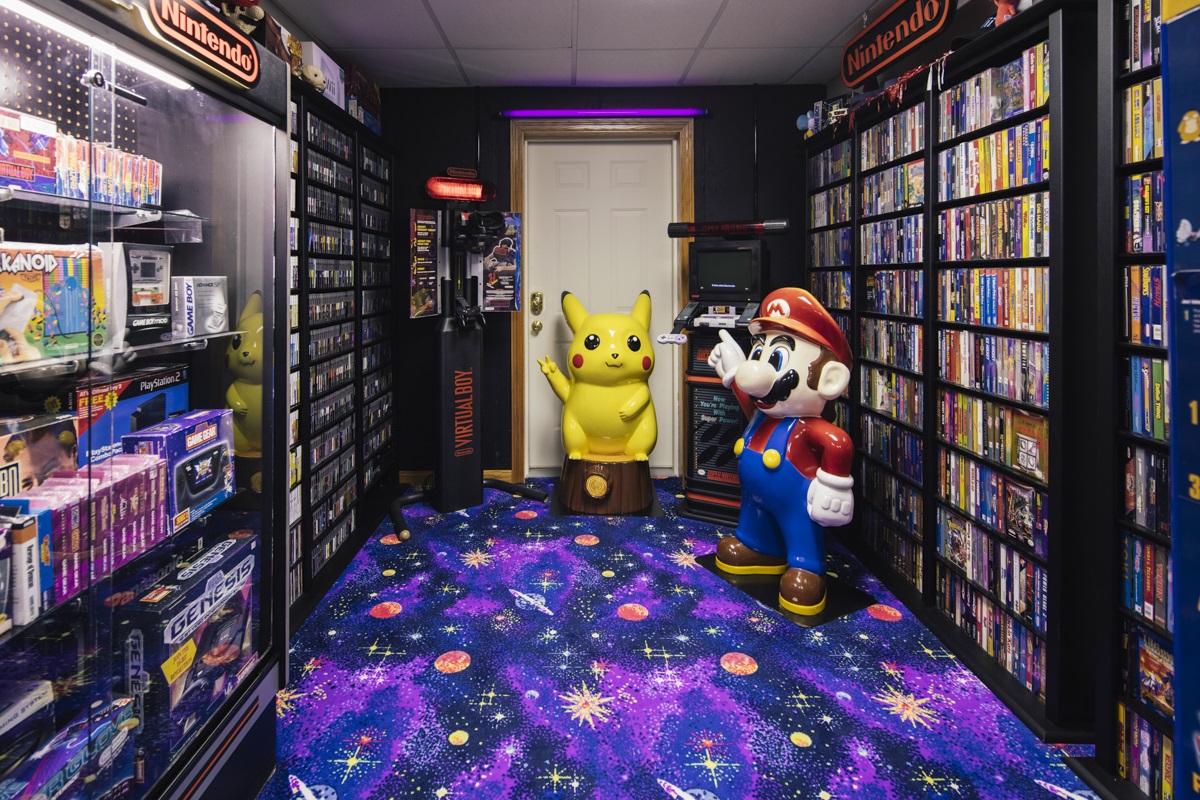Having a massive collection of video games may not automatically qualify Tod Curtis for Congress, but it doesn’t hurt.
Last week, Curtis, 45, announced his candidacy to represent Indiana’s ninth congressional district as a member of the Democratic Party. It was a decision the Indiana native made after becoming frustrated with the state of national politics, with rival factions seemingly more concerned with impeding the other side or scoring cheap political points than actually representing the interests of the people who voted them into office in the first place.
Videos by VICE
“There comes a point where either I stay in my comfort zone and stay in my comfortable life that I’ve built over many years, or I really step out and do something completely different,” Curtis told Motherboard in a recent phone call, explaining that he had toyed with the idea of running for state-level office for several years before ultimately deciding last fall to run for Congress. “At the federal level I can make changes that affect our future for our country and for our world.”

What makes his run so fascinating is that he’s a total, unabashed nerd. He grew up playing classic video games like Pac-Man while it was still in arcades, and started seriously collecting games, including Nintendo Entertainment System (NES) games, in the year 2000. “When I decided to start collecting I went to some of the video stores that were clearing out all their [NES] games because they had moved onto Sega Genesis and Super Nintendo,” he said. “I would buy in bulk all the boxes and games. All I wanted to do was preserve them so they wouldn’t get thrown away.”
Along the way Curtis picked up degrees in biology, dentistry (he’s an orthodontist by trade), and computer science, and has developed software in the fields of computer vision and artificial intelligence. He even owns an Oculus Rift! “I’m completely excited about all the things it can do, but I don’t play a lot of games on it,” he said of the Facebook-owned virtual reality headset.
Curtis’s video game collection, which now holds several thousand titles across multiple consoles and the PC, even contains Stadium Events, an exceedingly rare Bandai sports game for the NES that was featured in a 2015 documentary called Nintendo Quest. Curtis, who’s also featured in the documentary, now estimates his copy of the game to be worth between $25,000 and $35,000.

But as Curtis insists, brandishing his science, technology, and gaming credentials isn’t merely a ploy to win illusory internet points, but a way to illustrate why the good people of Indiana’s ninth congressional district should send him to Washington. He’ll participate in a Democratic primary in May 2018, and if he wins he’ll likely face off against Republican incumbent Trey Hollingsworth the following November.
“We need scientists [in Congress] because scientists understand how to evaluate our world and how to come up with solutions to problems,” he said. “We need people from the tech industry to get involved because our world is rapidly changing. I think some people don’t even realize how much technology has invaded nearly every segment of their life. And so if that’s the case we need people who understand science and technology to be making decisions about science and technology.”
This sentiment, that the arena of national politics could use more than a handful of participants who don’t deny established scientific fact, has gained currency in recent months—a sentiment buttressed by the likes of celebrity scientist Neil DeGrasse Tyson for several years. The fact that some truly befuddling science and technology-related policy decisions continue to ooze out of Washington has only added to Curtis’s sense of urgency.

What’s more, Curtis reasons, is that the generation of people who wouldn’t bat an eye at the prospect of collecting thousands upon thousands of classic games really have no voice in national politics. Who’s looking out for their interests?
“Gamers are typically a younger generation—I still try to consider myself part of the younger generation, although it’s getting a little harder nowadays—and are part of a segment that is definitely underrepresented in Congress,” he said. “People who have a certain philosophy and lifestyle that tends to appreciate togetherness and social interaction, and I’m not sure that a lot of members of Congress even understand the gamer generation.” (If her campaign in Massachusetts is successful, Brianna Wu, the video game developer perhaps best known for standing up to GamerGate trolls, may be one member of Congress who understands that generation.)
“Anytime you see an underrepresented segment of the population that you’re a part of you feel a tendency to step up if you have that capability,” he added. “That is a motivator for doing this.”
Get six of our favorite Motherboard stories every day by signing up for our newsletter .
More
From VICE
-

Eva Pascoe, founder of Cyberia, poses at the cyber cafe in London. All photos courtesy of Eva Pascoe, Ali Knapp, and Roger Green. -

Screenshot: YouTube/1980sGamer -

Screenshot: Epic Games Publishing -

Shoji Takeuchi, University of Tokyo
